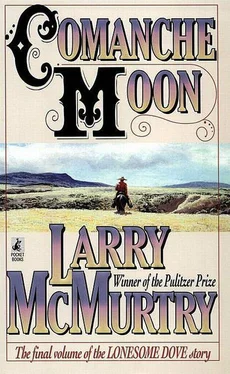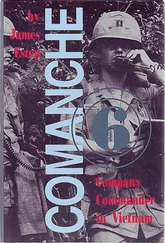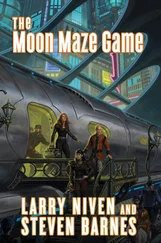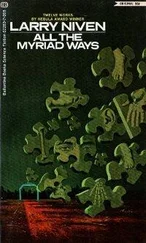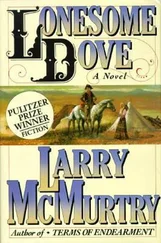But, morning after morning, there was no sign of the rangers. Maggie found Call's absence almost too much to bear, at such a time, with the baby in her. Just as she was hoping to give up whoring forever, all the men wanted her to do was whore, and she was afraid to refuse. The dark thought struck her that Woodrow might be dead. He had left with only five men, and the Comanches numbered more than five hundred, some said. The rangers might all be dead, and likely were.
Even to think it made Maggie feel hopeless.
If Woodrow was dead she would have no father for her baby. Then the whoring wouldn't stop: the men at the door, the men on top of her, the men who counted out money and waited for her to lay back and pull up her skirt. She would go on laying there, lifting her skirt to men who were none too clean, who stank and vomited, who had violence in their eyes, until she got sick, or was too old to be worth the money they counted out.
She thought she could have borne all the worry and all the doubt a little better if Woodrow had just had time to talk to her about the baby, to give her some hope that he would marry her, or at least help her with the child. He hadn't seemed to be angry about it; just a few ^ws would have been enough. But he had been in a hurry, usually was. Maggie could not find it in her to tax Woodrow too hard for his failure to speak; she rarely taxed Woodrow too hard about any of the things that bothered her. He was a captain now and had many responsibilities. Her hope was that he would come round to liking the idea of a child, or at least to not minding it much. When Woodrow Call did get angry with her a coldness showed in him that made her question whether happiness would ever be hers. He could be so cold, when angered, that Maggie wondered how she had ever come to care for him anyway. He had only been a customer, after all, a young man with quick needs, like many another. The older whores had all warned her not to get attached to customers.
One named Florie, who had taught her something of the business, had been emphatic on that score.
"I've known whores to marry, but it's a seldom thing," Florie said. "It's one of those things that if you look for them you won't find them." "Well, I ain't looking," Maggie declared --she had been much younger then. It wasn't entirely true: she had already met Woodrow Call and already knew she liked him.
"I looked once, but not no more," Florie said. "I just take their money and give 'em a few jerks. It don't take much longer than it takes to wring out a mop, not if you set your hips right." The next year Florie stumbled coming down her own steps and broke her neck. She had a big basket of laundry in her arms--it was the laundry that caused her to misstep. She was lying dead at the bottom of the steps with her eyes wide open when they found her. A goat had wandered over and was eating her laundry basket, which was made of coarse straw.
Maggie, despite Florie's advice, had gone on and got attached to Woodrow Call, so attached that she would sometimes put her hand on her belly and imagine that there was a little boy inside, who would look just like him.
One morning when she had gone out early to draw a bucket of water, she was surprised to see the sheriff limping up her stairs. The sheriff was named Gawsworth Gibbons; he was a large man and, in the main, kindly. Several times he had taken Maggie's side in disputes with drunken customers, a rare thing for a sheriff to do.
Despite Gaw Gibbons's kindly attitude, Maggie was always a little disturbed to see a sheriff coming up her stairs--it could mean she was going to be asked to move, or some such thing.
The sheriff had a bad limp, the result of a wound sustained in the Mexican War. It took him some time to mount the stairs--all Maggie could do was stand and wait, wondering what she could have done to prompt a visit from the sheriff.
"Why, what is it, Gaw?" she asked. She had known Gawsworth Gibbons long before he became a sheriff; before the Mexican War he had made his living shoeing horses.
"Has somebody complained?" she asked.
Gawsworth Gibbons smiled his large, kindly smile and followed Maggie into her room before answering.
"No complaints, Mag," he told her.
"All that's wrong is just what's apt to be wrong with any feller." To her shock, Maggie saw that he had money in his hand--he was coming to her as a customer, something that had never happened in the years she had known him.
It took her a moment to adjust to the notion.
The sheriff, out of consideration, turned his back as he lowered his pants. Even from the back, though, Maggie saw that the skin on his legs was twisted in a strange way. The skin had black specks in it, as if Gaw Gibbons had been peppered.
Then she recalled that what she had heard about his war wound was that he had been severely burned--a keg of gunpowder had blown up while he stood near it, blowing gunpowder and bits of the barrel into his legs.
"My wife, she's about give up on me, Mag," the sheriff said. "I expect she just can't tolerate these burned legs no more." "Oh, Gaw," Maggie said.
The fact that he spoke so sorrowfully when he mentioned his wife made the business at hand a little less hard.
Inish Scull quickly discovered that Ahumado didn't want him to starve too soon or too easily. Every second day one of the dark men whose duty it was to watch the cages lowered him a small jug of water. Though dizzied at first by the height and the space and the constant swaying of the cage--the lightest wind seemed to move it--Inish Scull gradually persuaded himself that the old man wanted him to live. Why else the water? Perhaps upon consideration the notion of a large ransom became more appealing; though, in view of Ahumado's searing contempt, to think thus was probably to think too optimistically.
Far from wanting him to live, Ahumado may only have wanted him to starve more slowly--thus the fresh, cool water. The first jug tasted as good as a meal.
In thinking about his situation--hung off a cliff, a two-hundred-foot drop below him, and an infinite space before him--Scull soon concluded that, whatever the Black Vaquero might want, he wanted to live. He was in good health, had sustained no wounds, was of sound mind.
Thinking about the matter soberly, he realized that he had often felt more hopeless in his wife's arms than he did in Ahumado's cage. He was of the mental temperament to relish extreme situations --in fact, had spent much of his career seeking them out. Now he had found himself in as extreme a situation as any man could well want. Few of his Harvard brethren had sought the extreme quite so successfully; it would make a good story to tell in the Yard, next time he was there.
Of course, in order to have the pleasure of telling, he first had to meet the challenge of surviving. In practical terms that meant securing the food most likely to be available, which meant birds. The only possible alternative was worms. His experience as a naturalist taught him that earthworms were to be found almost everywhere--he might be able to scratch a few out of Ahumado's cliff, but probably too few.
Of birds there was no scarcity. The cage attracted them, not merely eagles and vultures but others. On the first morning he caught a pigeon and two mourning doves. The pants he wore, once Tudwal's, were ragged things.
Scull unravelled one leg a bit and hung the three birds with threads from the pants leg; in the Scull family game was always hung before it was consumed, the customary period of hanging being three days. There was no reason to abandon the family's standards, that he saw.
Far below, he could see the people of the village; few of them looked up. They had, no doubt, seen many people hang and die in the cages.
Every day Ahumado sat on his blanket, and he did look up, not with his naked eye, though.
Читать дальше
